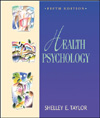| aerobic exercise | High-intensity, long-duration, and high-endurance exercise, believed to contribute to cardiovascular fitness and other positive health outcomes. Examples are jogging, bicycling, running, and swimming.
|
 |
 |
 |
| anorexia nervosa | A condition produced by excessive dieting and exercise that yields body weight grossly below optimal level, most common among adolescent girls.
|
 |
 |
 |
| breast self-examination (BSE) | Monthly practice of checking the breasts to detect alterations in the underlying tissue; a chief method of detecting breast cancer.
|
 |
 |
 |
| bulimia | An eating syndrome characterized by alternating cycles of binge eating and purging through such techniques as vomiting or extreme dieting.
|
 |
 |
 |
| obesity | An excessive accumulation of body fat, believed to contribute to a variety of health disorders, including cardiovascular disease.
|
 |
 |
 |
| set point theory of weight | The concept that each individual has an ideal biological weight that cannot be greatly modified.
|
 |
 |
 |
| stress eating | Eating in response to stress; approximately half the population increases eating in response to stress.
|
 |
 |
 |
| testicular self-examination (TSE) | The practice of checking the testicles to detect alterations in the underlying tissue; a chief method of detecting early testicular cancer.
|
 |
 |
 |
| yo-yo dieting | The process of chronically alternating between dieting and regular eating, leading to successive weight gains and losses; over time, yo-yo dieters increase their chances of becoming obese by altering their underlying metabolism.
|



 2003 McGraw-Hill Higher Education
2003 McGraw-Hill Higher Education

 2003 McGraw-Hill Higher Education
2003 McGraw-Hill Higher Education